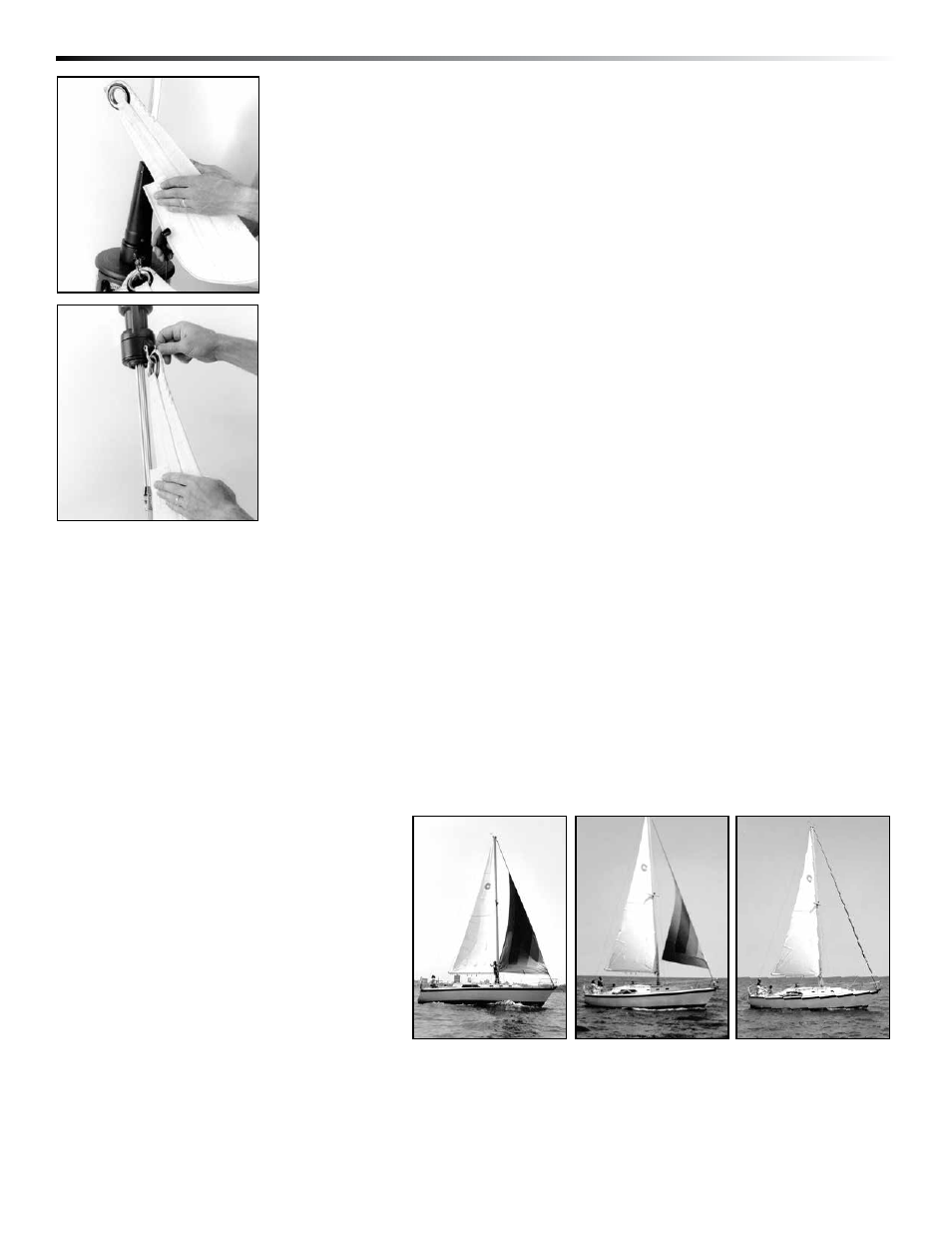Harken 7410.10 MKIV Jib Reefing & Furling User Manual
Page 28

28
MKIV Unit 0
furl and Reef
To furl or reef, ease the jib sheets and pull
furling line.
In very light air, it may be necessary to place
some tension on jib sheet to insure a tight furl.
In a breeze, you must completely luff sail by
totally slacking jib sheets before furling.
The furling line should pull readily. The amount
of force required is related to amount of wind,
but Unit should never require use of a winch to
furl. If the sail will not furl, or if furling requires a
great deal of effort, there is a problem with system. Consult the Troubleshooting
Guide on Page 32. Do not use a winch to force a system to turn. If you are certain
that the system is operating properly, you may use a winch to make furling easier.
Raise Sails
1) Install prefeeder by securely tying end of line to a deck fitting or to toggle
below furler so it is 2' (610 mm) below feeder.
2) Shackle tack of sail to drum. Install shackle so screw pin head is on same
side as sun cover.
3) Secure genoa sheets to clew of sail.
4) Attach genoa halyard to halyard swivel.
5) Pass luff tape through prefeeder and feeder into foil groove.
6) Attach head of sail or pendant at head of sail to halyard swivel.
7) Hoist sail.
Tip: New sails are often stiff and may hang up on prefeeder during
raising. Do not force sail when it hangs up—lower and remove
twist. Sails "break in" with use and will become easier to raise.
Storm Sails
Most people will use one multi-purpose genoa for all their sailing, but it is not good seamanship to go offshore
without storm sails.
Heavy-air working jibs and storm sails may be used with your unit. These sails need to have luff tape added to allow
them to be raised in headstay foils.
These sails will generally require pendants to ensure that halyard swivel is properly positioned at top of headstay. See
page 26.
Remember that heavy-air working jibs and storm jibs may be reefed and furled like any other sail.
Operation
Sail: Raise/Storm/Reef
